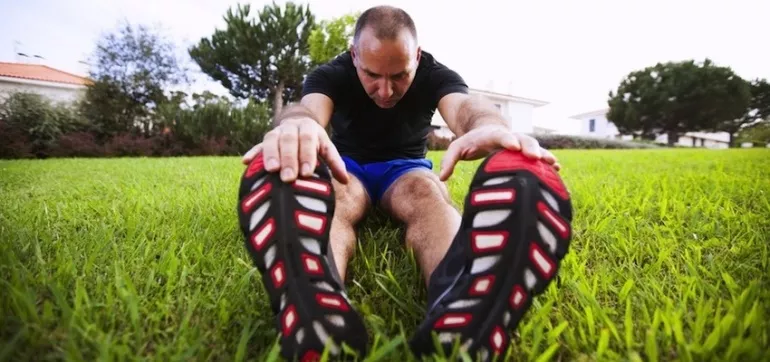
Would you be surprised to know that more women read MindBodyGreen every day than men? Why is it that when I give lectures on nutrition, 75% of the audience is female? Why are yoga classes almost always packed with women but only a handful of men? And why are topics such as testicular self-exams, digital rectal exams, erectile health, and male friendship rarely discussed at wellness events?
Surely health and wellness tips are as valuable to men as to women. Arguably, men need this information even more than women. Men die, on average, five years sooner than women. And new cases of prostate and testicular cancer outnumber breast cancer, but these male diseases don’t get as much as attention.
Guys aren’t helped by the fact that there’s tradition of machismo in our culture. But times they are a-changin’ … right?
Wellness Movements for Men
Thankfully, there are some wellness movements for men that warrant a mention. The Movember movement encourages growing a mustache to focus on men’s health. The Livestrong Foundation and its popular bright yellow wrist band has raised awareness of male health. The Prostate Cancer Foundation founded by Michael Milken has reached many men.
Yet, no campaign for men’s health and prevention has been as visible as breast cancer’s pink ribbon campaign (started by a manufacturer of chemotherapy and rarely teaching cancer prevention). Furthermore, there’s no concerted effort to encourage men to detect and prevent heart disease. (Do dudes need a red ribbon campaign?)
Men Need to Learn about Self-Care
The wellness movement and its message of holistic health (through food, water, personal care products, fitness, relationships and stress management) is as important to men as to women. But men just aren’t versed in self-care.
The challenge of balancing career and family is not often discussed for men but can be stressful; simple breathing practices to manage stress can be of great value to men who might be reluctant to take a yoga or meditation class.
Many men I know are likely to eat on the run, eat late, or simply have no cooking skills — and of which make them vulnerable to eating highly processed foods. Lessons in conscious eating would help them make better choices.
Finally, the male “weekend warrior” mentality of doing intense cardio exercise on weekends can be dangerous. Instead, we should all find ways to guide men into movement practices emphasizing flexibility and breathwork, such as yoga and pilates.
Who Are the Male Wellness Mavens?
If we want men to get more engaged in wellness, we need more role models who are as compelling as the high-profile ladies who inspire legions of women. We need male equivalents of Kris Carr, Dr. Terry Wahls, Suzanne Somers, and others who have turned health issues into “teachable moments” for all of us.
With Lance Armstrong out of the public eye, men need more examples of guys who have used holistic and integrative approaches to beat mental and physical challenges. Rich Roll, Magic Johnson, and Joe Cross come to mind but we need more, particularly among professional athletes and actors who have high visibility. It would also be helpful to hear more often from male cancers survivors sharing how they detected their illness at an early stage.
What Men Need To Focus On
If we want men to stay healthy, we need to encourage them to have wellness checkups, to know their numbers (cholesterol, blood pressure, BMI and waist, glucose, PSA and others), and to learn more about the role of nutrition and fitness in overall and sexual health.
Men need to understand that emotional health, loneliness, and stress are common situations that do not indicate weakness and can be talked about publicly and with health professionals.
Men also need to know the importance of male friendships and peer support. Mens’ nights out at wellness centers, yoga studios, pilates centers, and juice bars could bring more guys into the wellness movement.
Men need to learn the role of selecting personal care products that are organic and free of endocrine disruptors (like triclosan and phthalates) in order to protect their health and their reproductive systems. This topic is featured in the documentary The Disappearing Male, which explores the connection between environmental toxins and male health issues. It’s worth watching, especially since medical centers have done little to address this issue.
Women’s heart centers are available at many centers around the country, including one that I work in. Yet there is no visible equivalent of a “man cave,” where a male-focused approach (including hormonal analysis and early detection and prevention of male health issues) is offered. It’s time for these centers to be developed.
Mickey Mantle once said, “if I knew I was going to live this long, I’d have taken better care of myself.” Involving more men in the wellness world is an important goal so that they can learn simple steps to take better care of themselves.
Originally posted on MindBodyGreen.com

